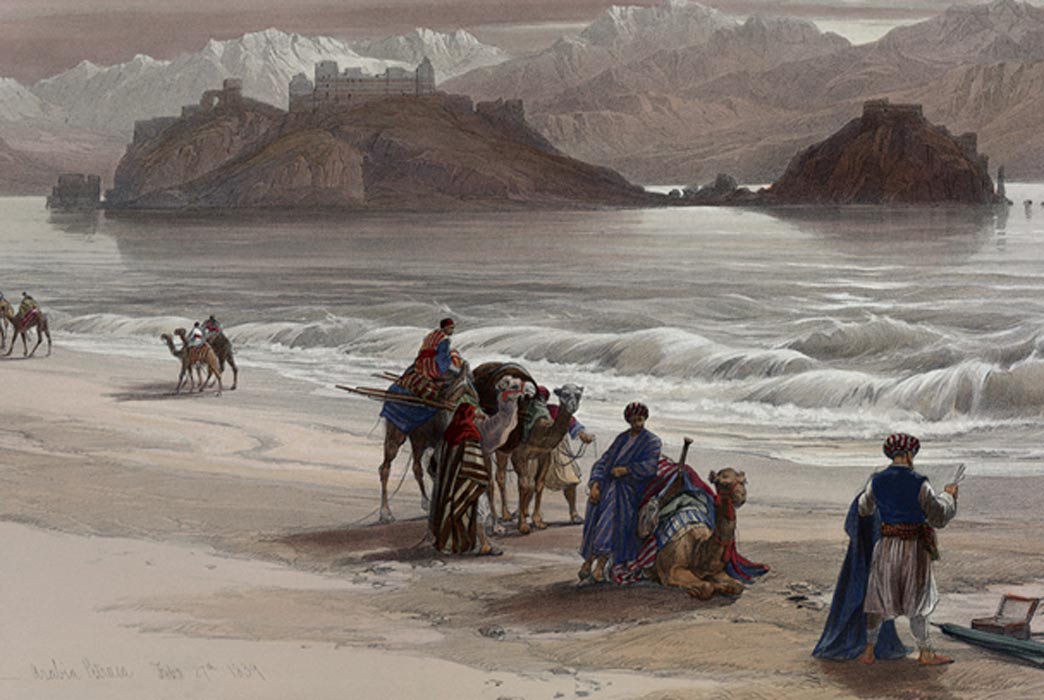
The Life and Times of Rumi: Sufism and the Golden Age of Islam
In this modern age, the poems of the 13th century Persian poet Muhammad Jalal ad-Din Rumi have sold millions of copies, making him one of the most popular poets in the world. Considered a provocative figure, Rumi continued the long tradition of ecstatic seers in the style of ancient Greek’s Sappho. His poems have also been compared to Shakespeare’s for their resonance. Meanwhile, for political theorists and historians, Rumi's writings on tolerance have further value in offering a glimpse of the beliefs and tradition in which Rumi experienced in his lifetime.
Rumi’s poems are the product of his time. He was born at the close of the period said to be the “Golden Age of Islam”, a time where the Islamic world became a major intellectual center for science, education and the arts, embracing Muslims and non-Muslims alike, which gave rise to a lot of inventions and scholars well known to this day.

Artist’s depiction of Rumi, 1890. (Public Domain)
The Rise of New Ideas and Polymaths
The Golden Age of Islam is traditionally dated from the seventh to the 13th century, in which Muslim rulers established one of the largest empires in history. It was during this period that artists, scholars, poets and traders in the Islamic world made their biggest contribution to a wide range of disciplines by preserving earlier traditions and by adding inventions and innovations of their own.
Through trading, the Islamic empires significantly contributed to globalization when the knowledge, trade and economies from many previously isolated regions and civilizations began integrating through their contacts with explorers and traders. The empire’s trade networks extended from the Atlantic Ocean and Mediterranean Sea in the west to the Indian Ocean and China Sea in the east, helping to establish the Islamic empires as the world’s leading economic power. As a result, Islamic civilization is unique in that it grew and expanded on the basis of its merchant economy, in contrast to their Christian, Indian and Chinese peers who generally expanded their societies from agricultural landholding nobility. Merchants from the Islamic empires, especially the Umayyad, and later the Abbasid caliphate brought goods and ideas to China, India, South-east Asia, and the kingdoms of Western Africa to return with fresh ideas and inventions.
In the middle of all these exchanges of goods and ideas, the first stage of a mystic movement known as Sufism appeared in the early Umayyad period (661–749 CE). Islamic mysticism is called tasawwuf which literally means “to dress in wool” in Arabic. However, since the early 19th century, the movement has been called “Sufism” in western languages. Sufism derives from a somewhat looser Arabic term for a mystic, sufi, which is in turn derived from ṣuf, (“wool”). This may be a reference to the woolen garment of early Islamic ascetics.
- The Longest Poem Ever Written: Shahnameh – The Epic Book of Kings
- The Ancient Tradition of the Whirling Dervishes of the Mevlevi Order
- Archaeologists Discover that Earliest Known Arabic Writing Was Penned by a Christian
One of the Sufi orders’ contribution to the rise and expansion of the Islamic civilization was their missionary activities. The members of different Sufi orders who settled in India from the early 13th century attracted thousands of Hindus by preaching the equality of men. These missionary activities were often joined with political activity. An example of this could be found in the 17th and 18th century Central Asia, where the Naqshbandīyyah, a mystical order, exerted strong political influence.
This extensive networking allowed the Bayt al-Hikma (“House of Wisdom”) to be established in Baghdad, where scholars from different cultures and faiths gathered and translated the world’s knowledge into Arabic. Knowledge was synthesized from works originating in all the ancient civilizations, and many classic works of antiquity were translated into Arabic, as well as Turkish, Persian, Hebrew and Latin.
This inclusiveness extended to the labor force. Both men and women were involved in diverse occupations and economic activities. Women were employed in a wide range of commercial activities and diverse occupations such as farming and construction work. There were also women occupying posts such as doctors, nurses, scholars and many others.




